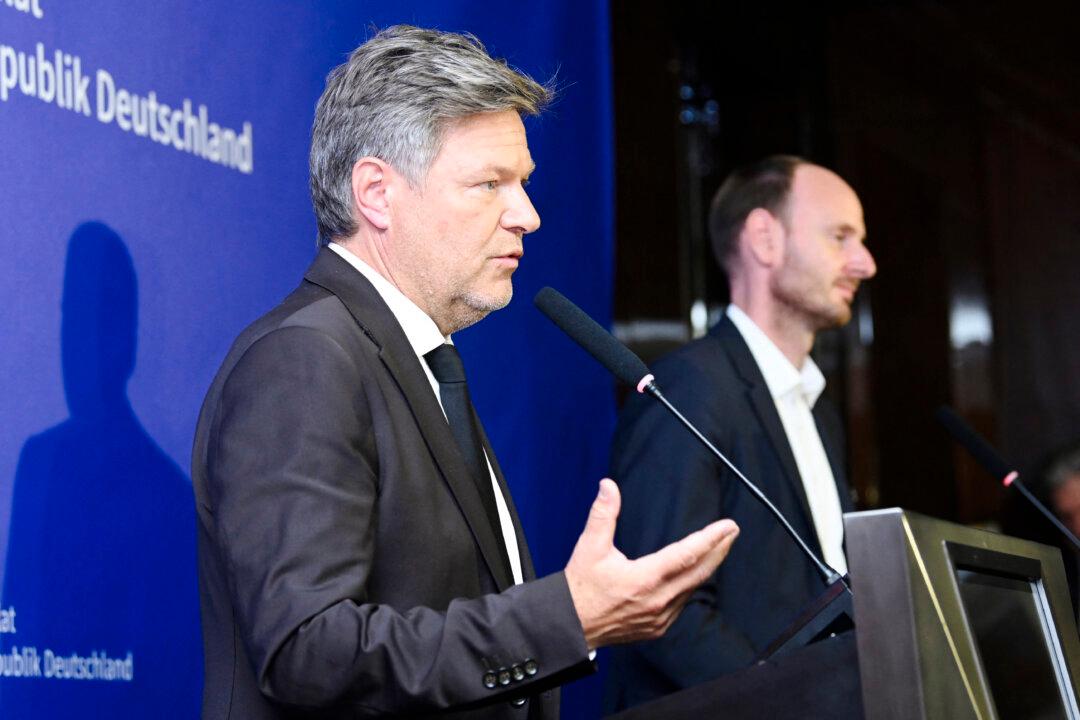The Chinese communist regime’s support for Russia amid the Ukraine war has already taken a toll on the economic relationship between Berlin and Beijing, German Vice Chancellor Robert Habeck said during an official visit to China.
Trade between China and Russia surged by more than 40 percent in 2023, and nearly half of the increase, according to Mr. Habeck, was because of goods with both civilian and military uses.




